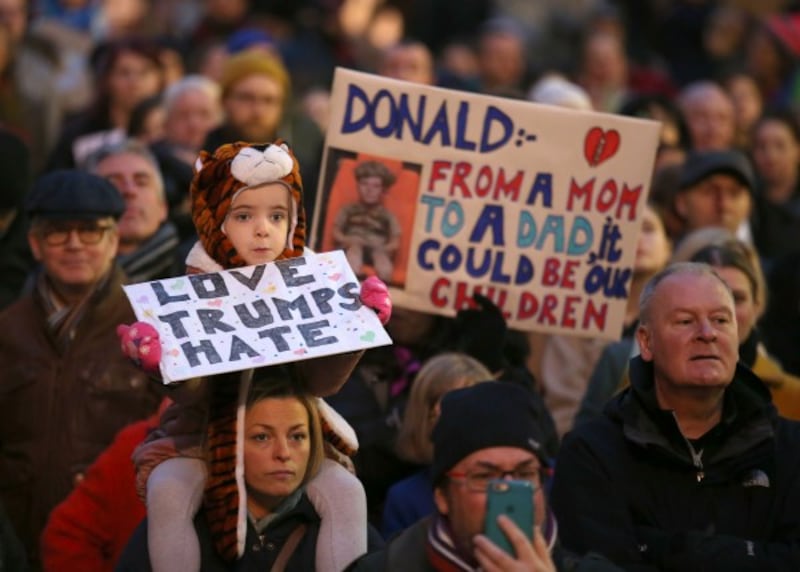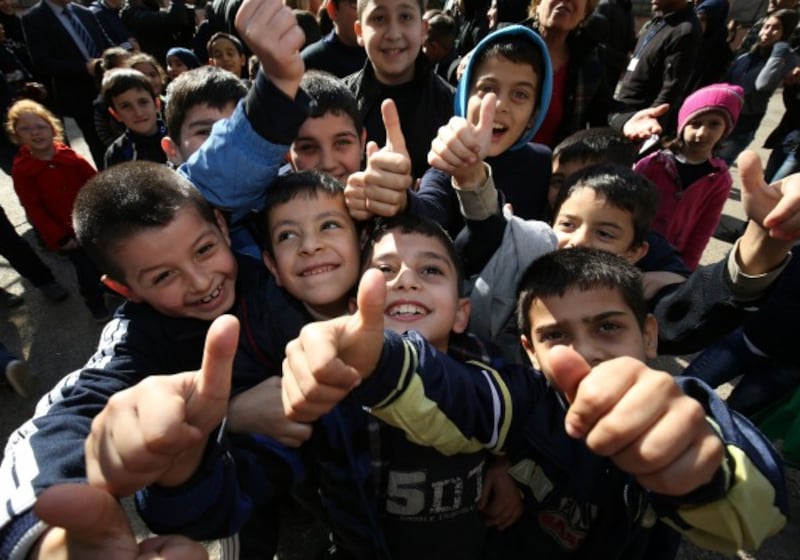Reporter Laura Dennison explores whether social media has made us want to strive for social change and questions the psychology behind why.
Social media has completely transformed the way we consume news. We’re living in a world revolving around a new kind of journalism, peppered with the frequently unedited coverage of an ongoing humanitarian crisis – the Syrian Civil War.
In 2016, the Reuters Institute for the Study of Journalism reported that 51% of people with online access use social media, particularly Facebook, as a news source. Through a shiny 5-inch screen we’ve watched this war unfolding, including the good (JK Rowling sent eBooks to 7-year-old refugee and Harry Potter fan Bana Alabed) and the totally horrifying (toddler Alan Kurdi became an enduring image of the crisis when a photograph of his tiny body washed up on the beach hit global headlines). People in the First World are far enough away from the war not to feel its devastation directly, but we are close enough – through the availability of new technologies – to help.

The UK government this year committed £2.3 billion to help the 13.5 million people in need of humanitarian assistance in Syria, but on an individual level it’s difficult to see just how much we are doing through the smoke and mirrors of “likes” and social media shares.
Dr Linda Kaye, who is a senior lecturer in Psychology focusing on psycho-social impacts of new and emerging technologies, believes that “social media, such as Facebook, is more powerful than people may think on eliciting reactions, particularly as the platform is interactive”.
She explains: “Likes and comments as well as the newer ‘reactions’ are incredibly powerful messages which allows other users to appraise the content with other people’s emotional reactions in mind. Psychologically, we know that there are a number of factors which persuade people to conform to the social norm.
“Seeing an image of an orphaned child who is depicted as a victim of the war is upsetting, but seeing this image with thousands of ‘sad’ and ‘angry’ reactions attached to it, elicits a greater emotional reaction.”

As well as being a nucleus for images, news and information, social media is allowing people an opportunity for spreading their political stance, and the Syrian War is one topic which can elicit strong views.
Dr Chris Stiff is a Psychology lecturer at Keele Universiy who has research interests in cyberpsychology. He says that social platforms can lead to the “proliferation of extreme opinions”, and describes it as “a perfect kind of cauldron for opinions” as anonymity and the ability to find others who share those opinions can be quite easily done.
Are we caring only because everyone else does?

So-called ‘armchair activists’ – people who post hashtags and who change their profile picture filters in light of tragic global events, without actually doing anything to make a physical change – are an interesting topic for Chris, and he thinks that social media actually seems to be a “positive tool” for change, even if people are only pretending to care because of “conformist pressures” and to look good in front of their friends.
He says: “The evidence seems to suggest that doing those things on social media do then predict physical participation in those causes, but not always.”
Explaining the psychology behind this, he refers to normative social influence, which is a type of social influence which leads to conformity. He says that “we are very powerfully motivated to work with others and to get on with others”, adding that we have a strong desire to belong so we wouldn’t want to be seen to be doing nothing in a crisis that others appear to be outraged about.
He also refers to prospect theory, which is a behavioural economic theory that describes the way people choose between probabilistic alternatives that involve risk – put simply, the costs and rewards of doing things. For example, the cost of putting something on Facebook is very low, yet the rewards are high – “why not do it?”, he asks.
Has social media impacted the reliability of our news?

Of course, internet news stories can contain bias, inaccuracy and sensationalism within – and when those are shared thousands of times, it can potentially alter how likely we are to support a cause. Chris says that those who are more likely to be poorly informed about issues and are “susceptible” to influence through social media are those with a low need for cognition, meaning those who don’t tend to enjoy doing things for the sake of flexing your brain cells – like doing a crossword puzzle, for example.
Although there is, at the moment, a lack of literature centring on the impact social media has had on the Syrian war specifically, Professor Marc Lynch – a professor of political science and international affairs at George Washington University – wrote back in 2014 about “Syria’s Socially Mediated Civil War”, in a report from the USIP PeaceTech Initiative, and commented that social media “can create a dangerous illusion of unmediated information flows”.
Interestingly, he noted that “the rapid growth in Arabic social media use poses serious problems for any research that draws only on English-language sources”, suggesting a potential bias for English-speaking journalists when writing or creating media about the war – and in the modern day, bloggers and Joe Public too.
Has social media made us better people?

Dr Kaye thinks that “when used carefully and with the right intentions, it (social media) can be very powerful for sharing positive messages, promoting positive collective action, and creating a sense of shared humanity”.
However, Dr Jared Ahmad?, a lecturer in International Relations at the University of Manchester, is sceptical. “Not everyone has access to these amazing new phones,” he says, adding that globally only around half of us are lucky enough to, and the vast majority of those people are English-speaking – echoing Professor Marc’s point about Western bias.
He continued: “Because political engagement is reduced to liking things or sharing things on Facebook, I don’t think that lends itself to long-term political change.
“In regards to the Syria conflict, I don’t think enough people 1) know enough about what’s going on on the ground and 2) care enough. It is sad because this is the most pressing geo-political issue of our time.”
Viral posts stamped with thousands of “angry” and “sad” reactions “can create an illusion of change, but if you step outside of that very narrow bubble you don’t really see a massive mount of difference,” he says.
Technological privilege means many of us are in a unique position to create social change from the comfort of our living rooms, but ultimately what it boils down to individual impact. The truth is that likes and shares won’t make much of an immediate difference to the lives of refugees like Bana and Alan, but extending your sentiments by going out to protest, volunteering and by donating what you can, might just do it.








